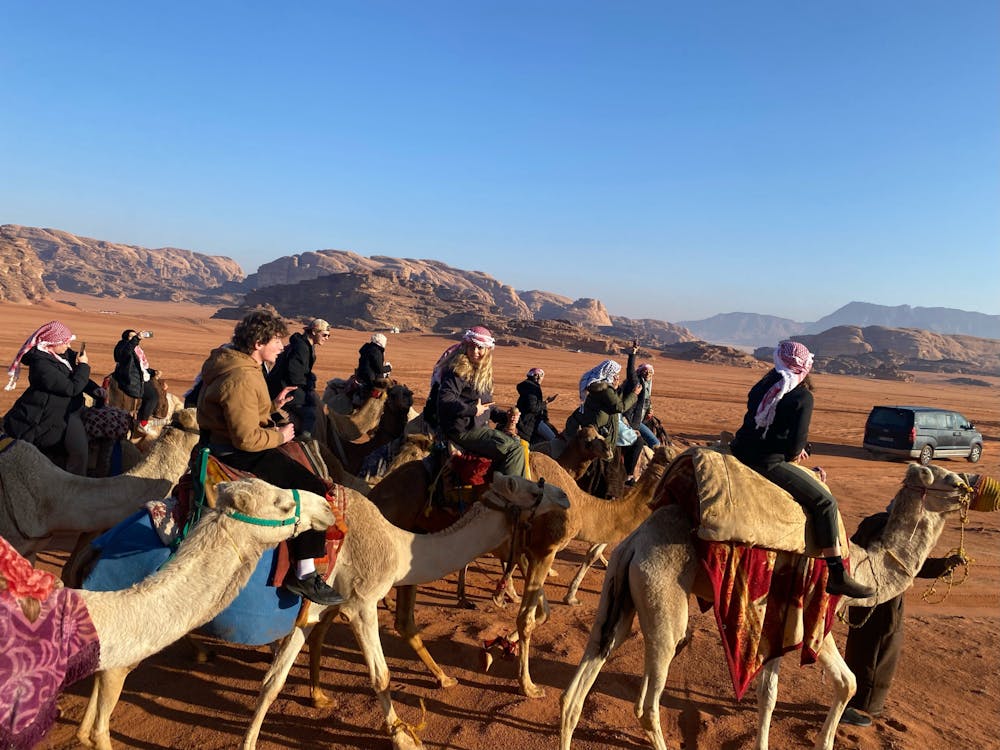Study Abroad January Term courses — of which there are 19 — will take place over the coming weeks, stretching across five continents. The courses, which students had to apply to take, will cover a range of topics, from technology consulting to modern architecture and sustainability.
J-term courses will offer course credit for 375 enrolled undergraduate students. While on-Grounds J-term courses run from Jan. 2 to Jan. 12, many study abroad courses begin earlier, with some starting in late December.
One course set to begin Dec. 29 is U.Va. in Argentina: Global Technology Consulting. The program began in 2008 and gives students the opportunity to work with wineries in Mendoza, Argentina.
Reid Bailey, co-faculty leader of the trip and professor of systems engineering, said a goal for the course is to make students go about the work they are doing differently than they would for courses they take on Grounds. He compared academics on grounds to a game where students work towards an evaluation, whereas the focus of the J-term course in Argentina is to have students think more seriously and not dwell on their performance.
“We've got to shake students out of their mentality that they bring to a class and make them understand that this is not a class,” Bailey said. “They're gonna get a grade, but that's not how we view this.”
The course will last 15 days and includes 30 students of varying majors, though the program is housed out of the School of Engineering and Applied Science and the McIntire School of Commerce. Students will work in teams with the help of translators to propose solutions to the real-world problems faced by Argentinian wineries, which Bailey said will teach students more than they would learn in classrooms.
“We're freed from a lot of constraints that we have at [the University],” Bailey said. “The structures and the constructs of classes at [the University], at any university, limit us from tapping into some of the more authentic things that you're going to need to learn to work professionally.”
Another course taking place over break is called Urban Transformations: Exploring Sustainability Past and Present in India. The course is based in Delhi but will take trips to surrounding areas, including visiting Mathura and the Taj Mahal.
Phoebe Crisman, co-faculty leader and professor of architecture, said students conduct research projects on topics and places they learn about while on site.
“It's an experiential, immersive kind of learning,” Crisman said.
Crisman said the course will look at the relationship between humans and how they construct their environments through a sustainability lens. In the last year, India became the World’s most populous country, which Crisman says means the country has great examples of rapid urbanizing cities with sustainability challenges. According to the course syllabus, some of the challenges the course will study include climate change, waste management and heritage construction.
She also said study abroad programs are valuable because they offer intercultural learning experiences you cannot get in the classroom.
“You learn to empathize with people in a different way,” Crisman said. “You learn to understand that your way of living is not like everyone else's around the world.”
Also taking place this winter is a class titled U.Va. in Jordan: Cultural Authenticity in a Modern Middle Eastern Society. Students will visit a variety of locations throughout Jordan during this course, including Amman, Petra and the Dead Sea.
Bilal Humeidan, faculty leader and assistant professor in the department of Middle Eastern & South Asian Languages and Cultures, said that the goal of the course is to increase students’ knowledge of diverse Arab cultures and to discover ancient sites and traditional food that few people get to experience.
“Through participation in the course, we hope that students will develop their cultural competence, and thus contribute to their ability to become thoughtful global citizens,” Humeidan said in an email to The Cavalier Daily.
Humeidan said despite the ongoing neighboring conflict between Israel and Palestine, there have been no major changes to the course. He said there have been extensive reviews of the health, safety and security situation in Jordan, which have included guidance from the U.S. Department of State, local and international news organizations and on-site partners in Jordan.
All J-Term courses will conclude before the spring semester begins Jan. 17.





